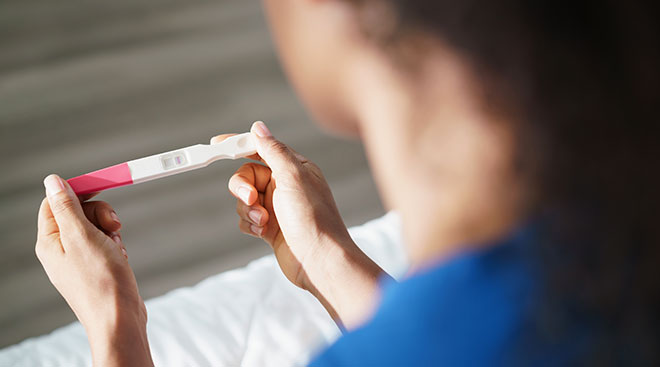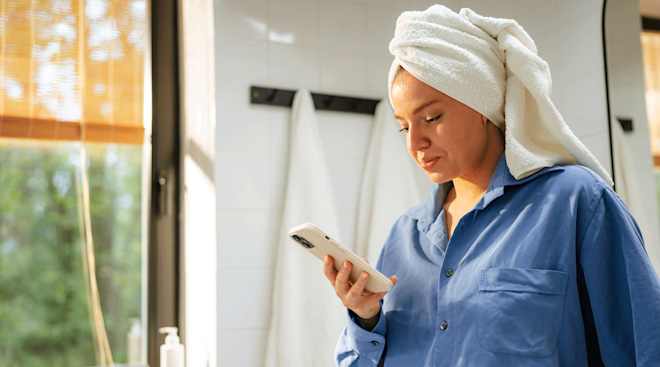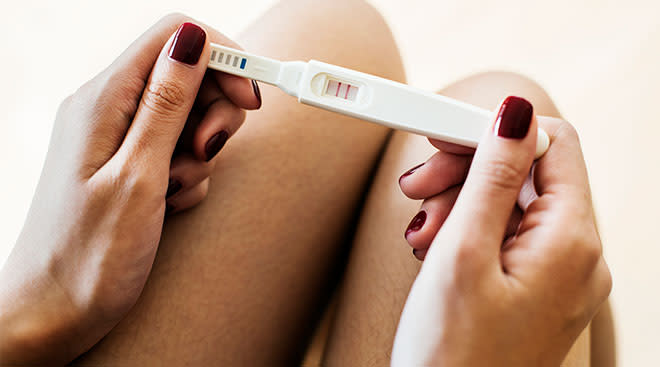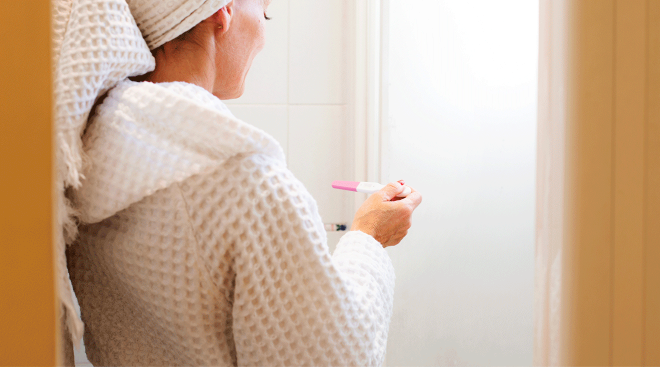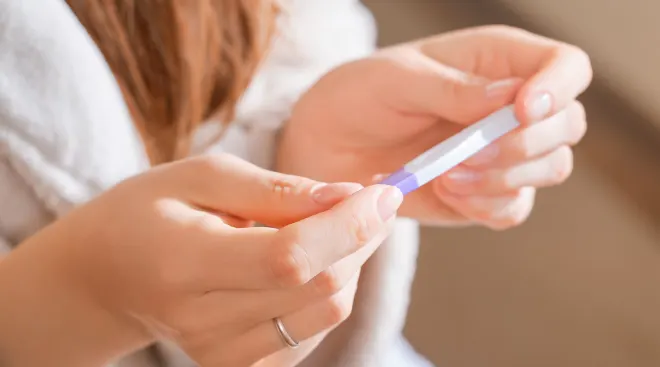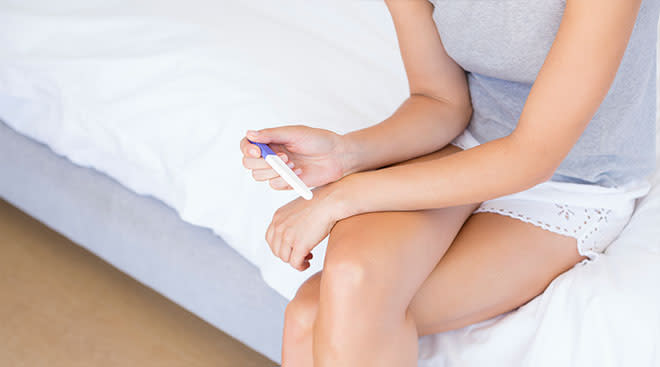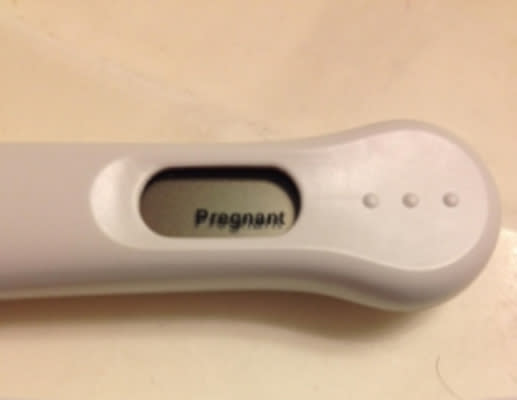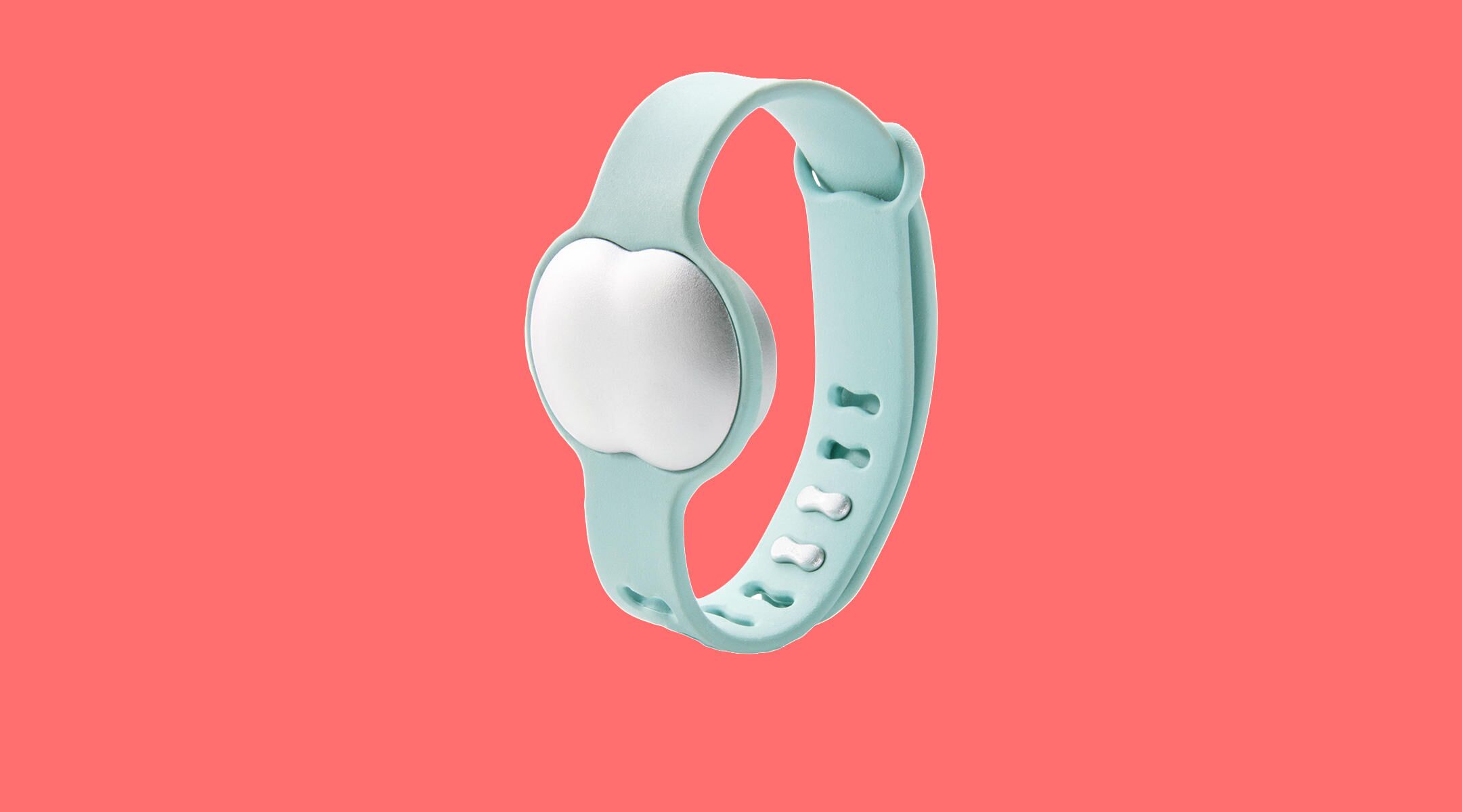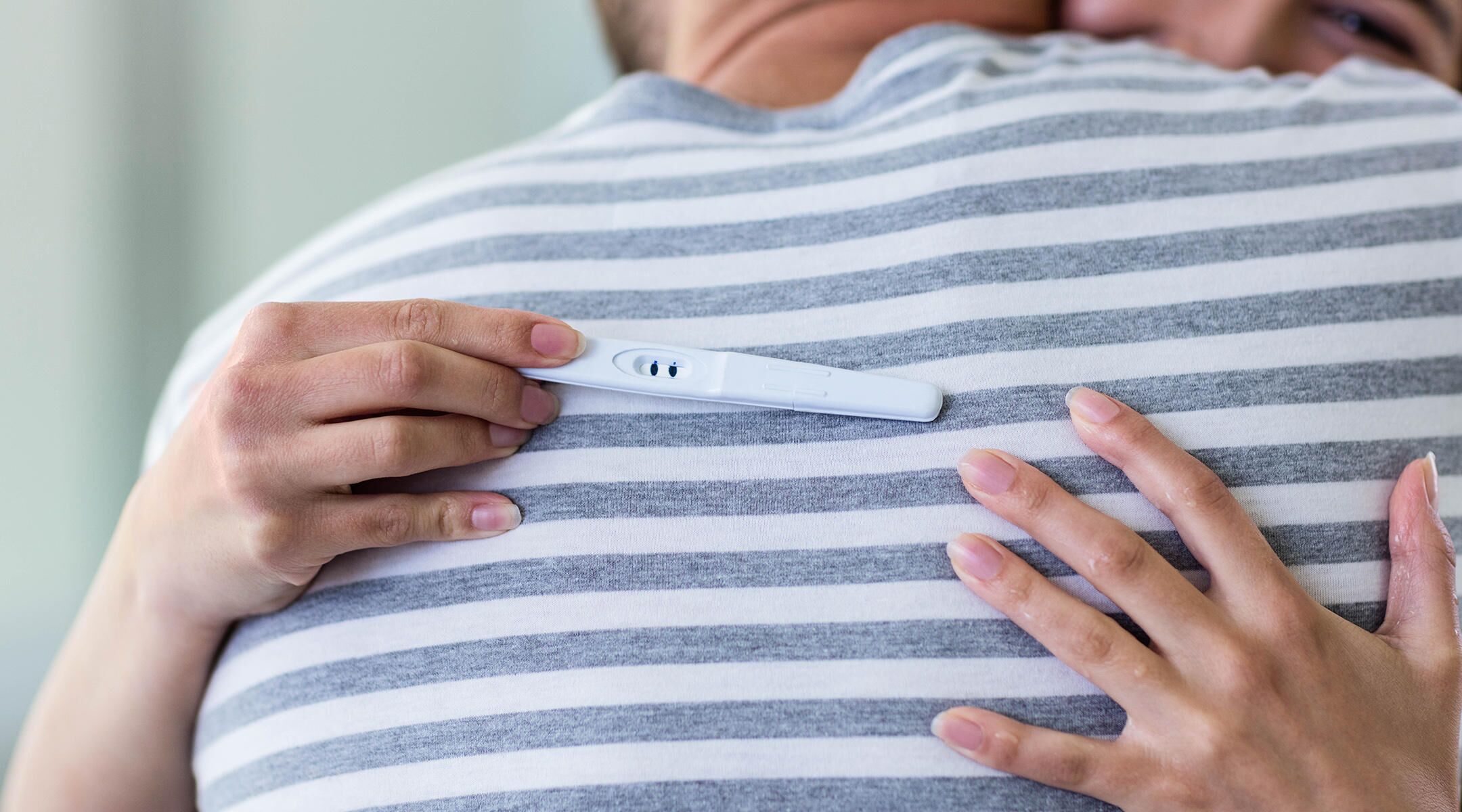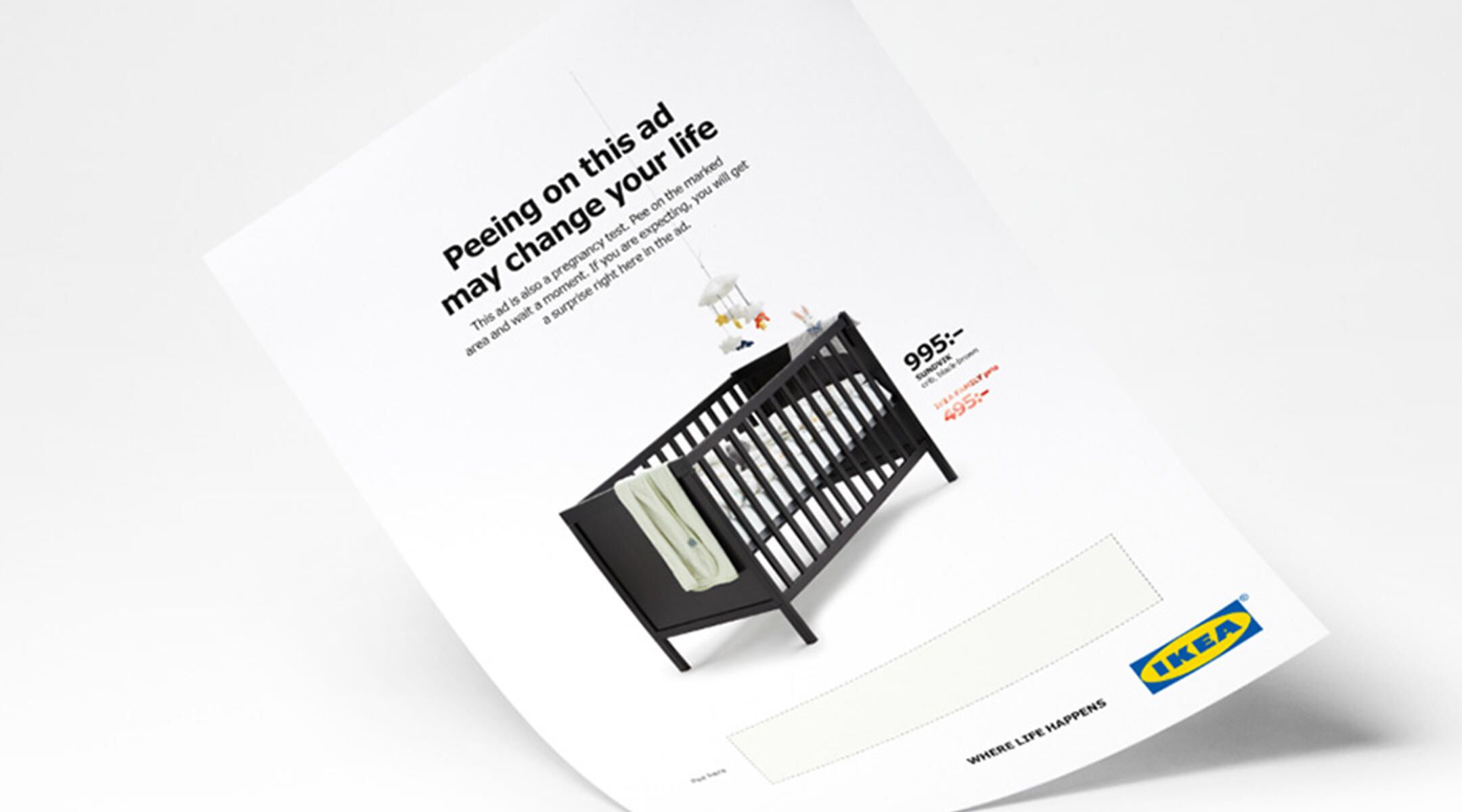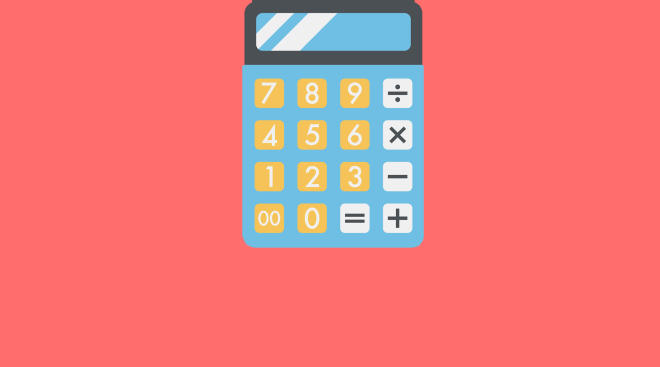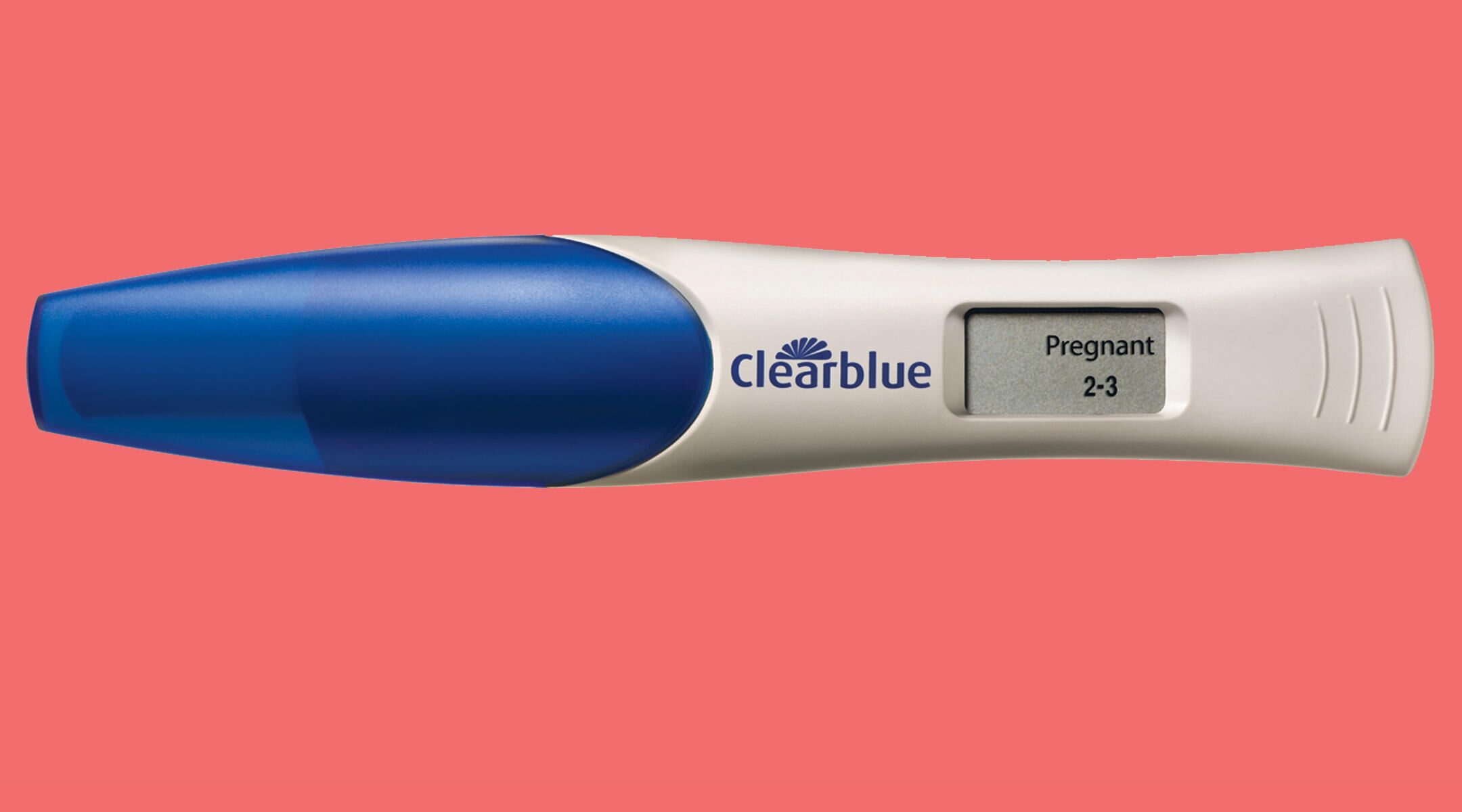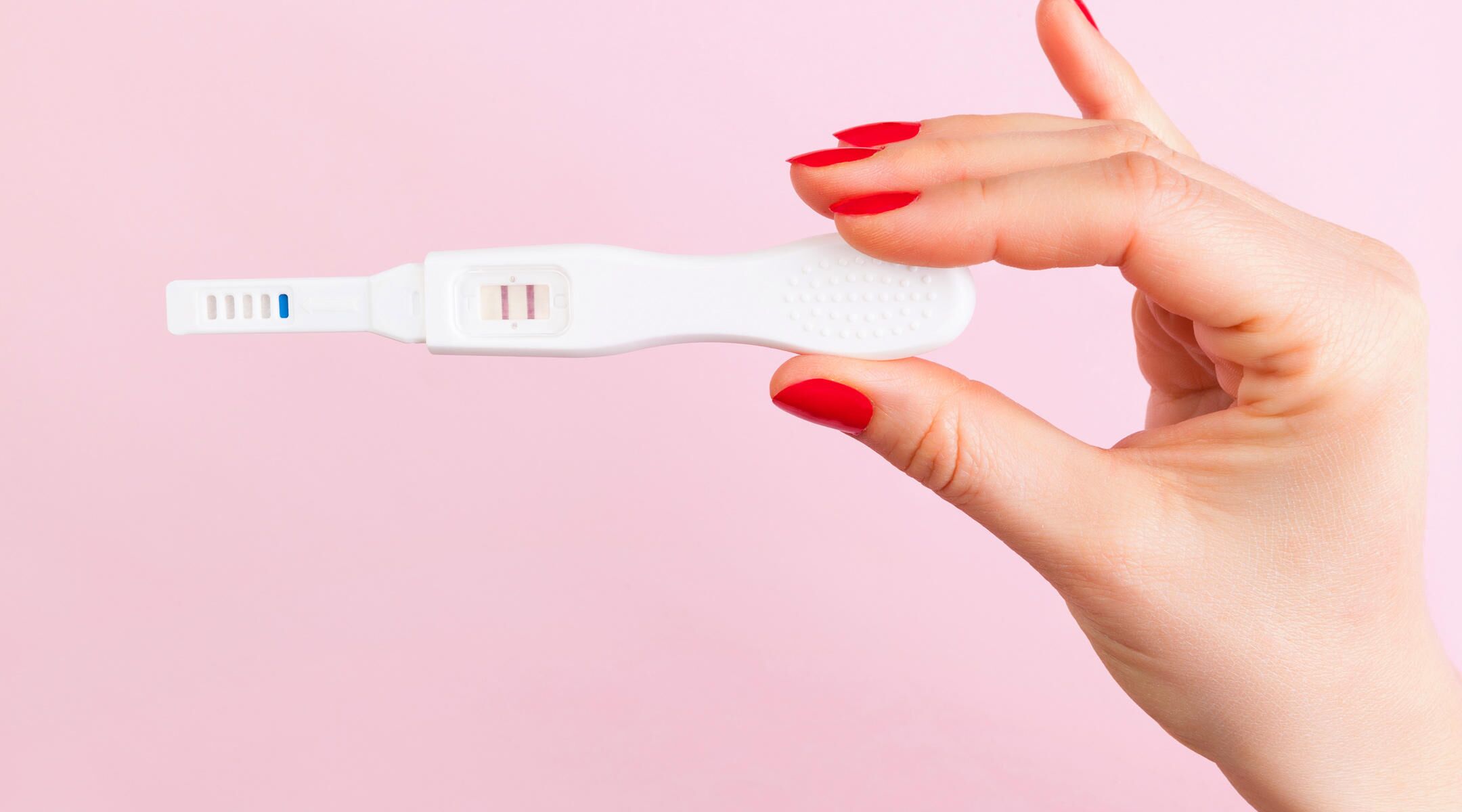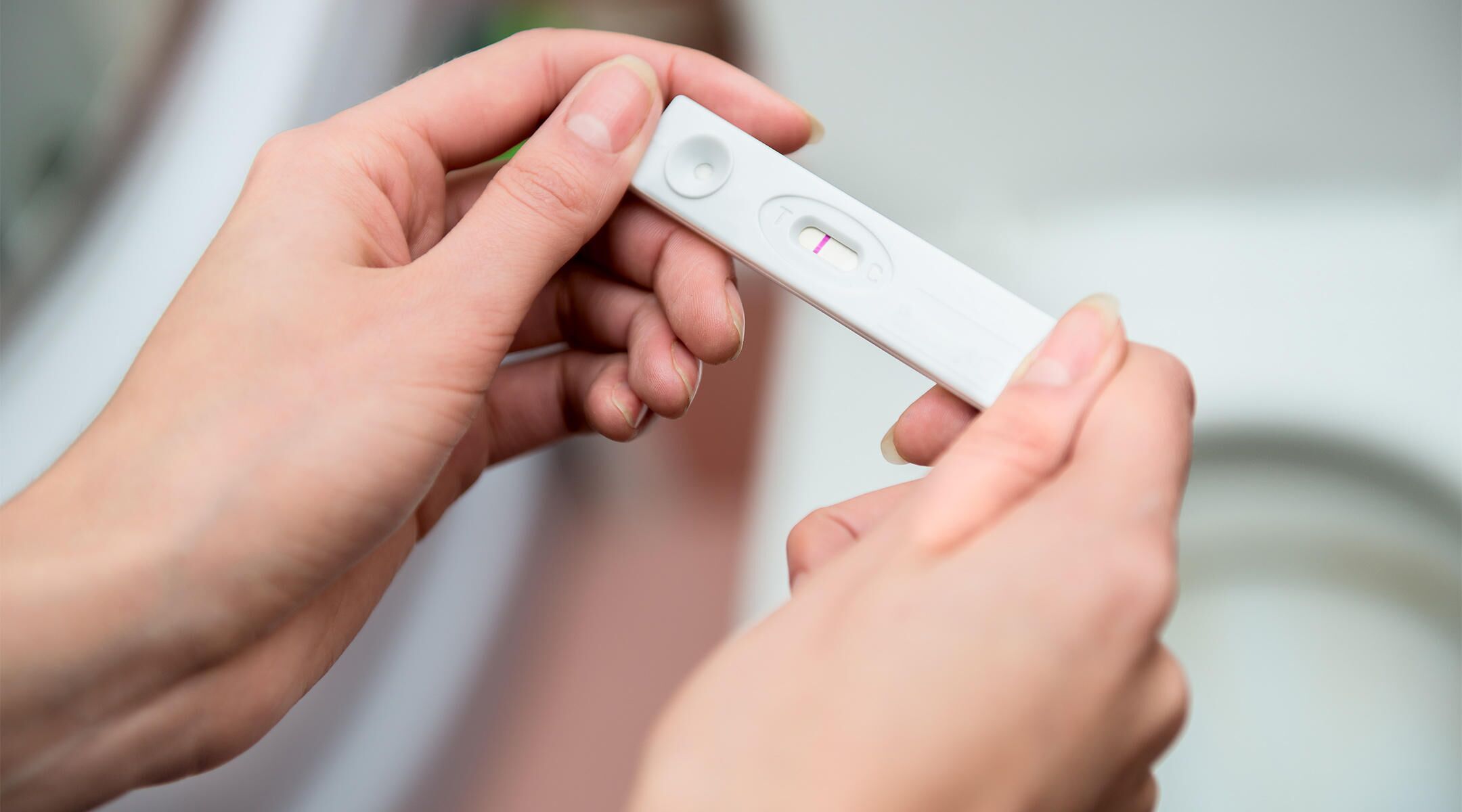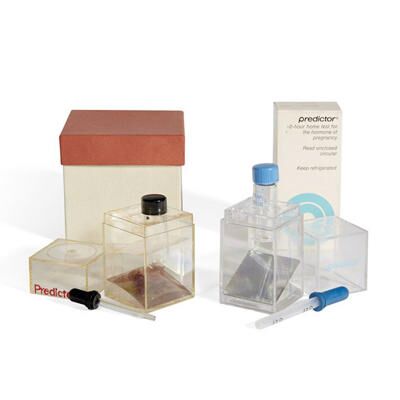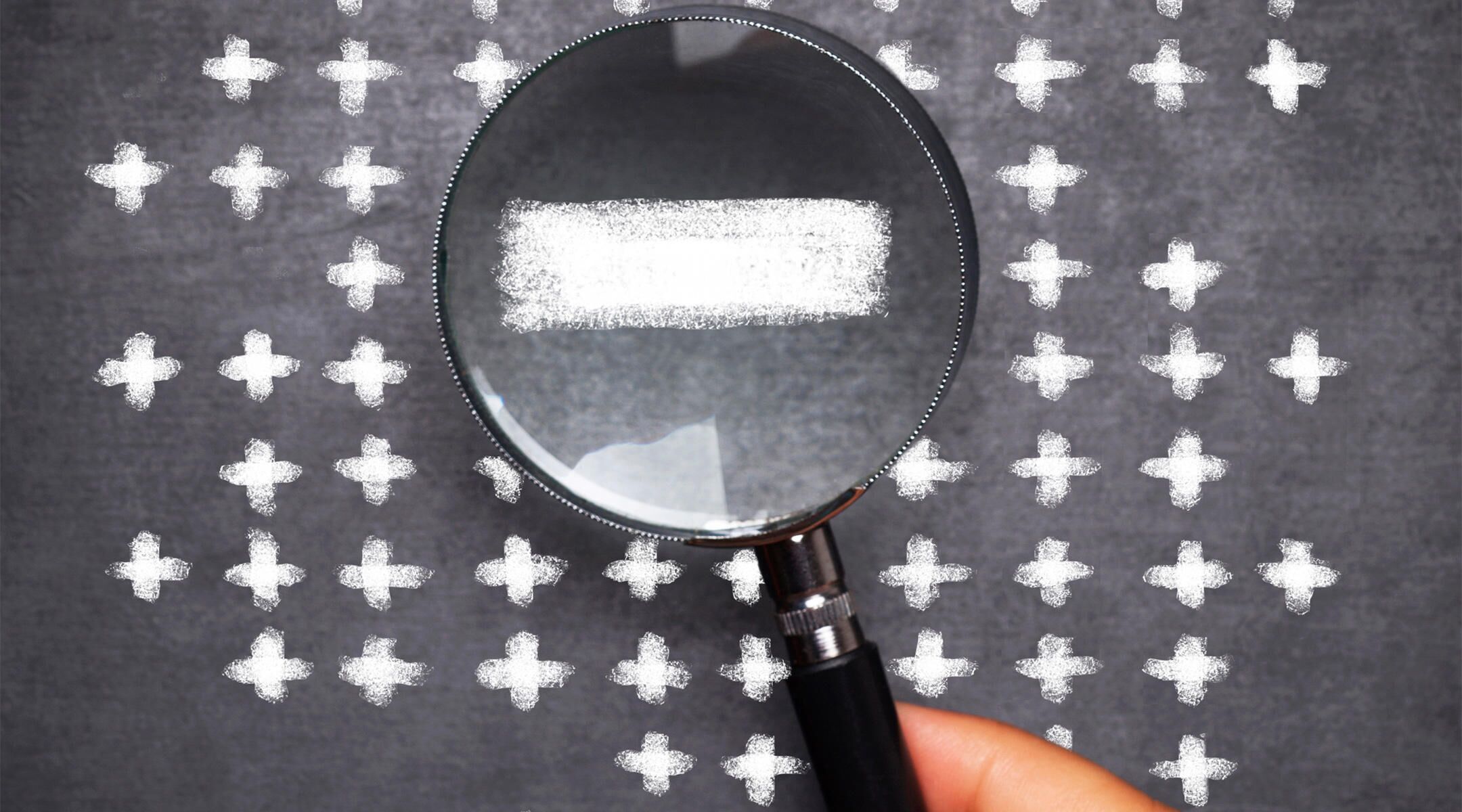Can You Get a False Negative Pregnancy Test?
When you’re trying to conceive (and certainly when you’re trying not to), the notion of being told you’re not pregnant when in fact you are can be utterly distressing. Can you get a false negative pregnancy test result? Yes, it’s possible. So how common is this, and why does it happen?
The truth is, getting a false negative pregnancy test isn’t likely—but it can definitely happen under certain circumstances. Here, we’ve talked to experts to get their take on what can cause a false negative pregnancy test.
A false negative pregnancy test is a test that shows a negative result when you’re actually pregnant. While a false negative pregnancy test is rare, it’s more likely to happen than a false positive pregnancy test. It can happen if you take the test too early, the test isn’t sensitive enough or your urine isn’t concentrated enough.
In most (though not all) cases, a false negative pregnancy test occurs when you are pregnant, but the levels of pregnancy hormone in your body haven’t yet reached the test’s threshold of sensitivity. Here are a few reasons why this might happen:
You’re testing too early
An at-home pregnancy test works by checking your pee for hCG (human chorionic gonadotropin), a hormone your body produces when the fertilized egg attaches to the lining of your uterus, days after ovulation. For the most accurate results, it’s best to take the test a day or so after your missed period. If you take it earlier, the amount of hCG may be too scant for the test to pick up just yet, says Sean Esplin, MD, senior medical director for women’s health at Intermountain Healthcare in Utah. This can happen even if you’ve been diligently tracking your cycle. (After all, stress can delay ovulation, and if you’ve been trying to conceive in earnest, you know how stressful it can be!)
If your test registers a negative result but you suspect it’s wrong, simply retest in a few days. Fingers crossed, you should see at the very least a faint line on your pregnancy test, which likely confirms you’re pregnant (yippee!). If you continue to see a negative result but aren’t convinced, make an appointment with your ob-gyn. Your doctor can perform a blood-based pregnancy test, which, according to Esplin, is more accurate than at-home urine tests.
The test isn’t sensitive enough
Not all pregnancy tests are created equal. Some are designed to pick up the low levels of hCG that exist in the earliest stages of pregnancy, but others are not, explains Heather Lopez, MD, an ob-gyn with Hibiscus Women’s Center in Florida. Some take less time to analyze your urine before producing an answer, and others require a longer wait time. What’s more, a pregnancy test isn’t very good at detecting hCG at all if it’s woefully past its expiration date.
So when you pick up a test at the store:
- Check the expiration date. Make sure you’re using it well within that time frame.
- Check the packaging. If you’re planning to test before a missed period, it should specifically say “early result” or “early detection.”
- Check the instructions. If it says to wait two minutes for a result, set the stopwatch on your phone and wait for the full two minutes (and fight the urge to peek!)
Your urine isn’t concentrated enough
Experts advise taking a pregnancy test when you first pee in the morning—and for good reason. That’s because as you drink your morning coffee or tea, bottle of water, etc., you lower the concentration of hCG in your urine. And if your amount of hCG is low to begin with (because, say, it’s early in the pregnancy), you might end up with a false negative pregnancy test result. This can be avoided when you take your pregnancy test in the morning, Lopez says, before you’ve had anything to eat or drink.
You have a particular medical condition
Sometimes, a medical issue wreaks havoc on your body’s hCG levels, which can lead to a false negative pregnancy test. Consider, for instance, the very rare condition known as gestational trophoblastic disease, or GTD, which, according to Esplin, affects only about 1 in every 1,000 pregnancies. With GTD, tumors develop during the early stages of pregnancy, accompanied by sky-high levels of hCG, well above what you’d find in a normal pregnancy.
This then triggers what doctors call the “hook effect,” which is what happens when the urine sample contains too much of the substance that the specific pregnancy test is trying to detect, Lopez explains. “So instead of giving a positive result,” she says, “the test almost becomes overwhelmed by the excess amount of the substance it’s testing and gives a false negative.” But the hook effect is rare, she adds, and occurs less than 2 percent of the time.
More prevalent, but still uncommon, is a false negative pregnancy test brought on by an ectopic pregnancy, which occurs in only 1 in 40 to 1 in 100 pregnancies. In this condition, the fertilized egg implants outside the uterus, Esplin explains, and it’s usually diagnosed when patients visit the doctor because of abdominal pain and bleeding. In contrast to GTD, ectopic pregnancies have a slower, not higher, rate of rise in hCG. As a result, you might see a faint line on your pregnancy test, or none at all. An ectopic pregnancy is not viable and is in fact unsafe. If you’re feeling pain and bleeding, see your doctor right away.
Medications that can cause false negative pregnancy test
For the most part, medications shouldn’t change your pregnancy test results, says Cleveland Clinic. But there are some medications that can potentially cause a false negative pregnancy test, including diuretics, commonly used for high blood pressure, and promethazine, an antihistamine, says Christine Greves, MD, FACOG, an ob-gyn at the Winnie Palmer Hospital for Women & Babies in Orlando.
For the record, birth control also doesn’t affect the accuracy of home pregnancy tests, according to Mayo Clinic. Antibiotics, pain relievers or alcohol also won’t impact your pregnancy test results, says Cleveland Clinic.
From flushable strips to those that reveal how far along you are, pregnancy tests have grown a lot more sophisticated over the years. In fact, most at-home pregnancy tests are about 99 percent accurate, Lopez says.
Subsequently, the likelihood of a false negative pregnancy test has gone way down. “In newer tests that are FDA-approved, the risk of a false negative is very low,” Esplin says. Of course, accurate results don’t just depend on the quality of the pregnancy tests, but how the tests are used and when. For this reason, it’s tough to zero in on exactly how common false negative pregnancy tests are.
Still, a 2019 Washington University study shed a bit of light on the issue. The researchers evaluated 11 of the most-used hospital pregnancy tests and found that seven were somewhat susceptible to false negatives, two were highly susceptible and only two weren’t susceptible.
“The worst urine pregnancy test in this study gave false negative results in about 5 percent of urine samples,” notes Lopez (who wasn’t involved in the study). Your best bet is to choose an established brand of pregnancy tests that tends to produce more reliable results, and retake the test a day or two later if the first reading is unclear.
While pregnancy tests are generally accurate, this has been known to occur. Typically, a false negative pregnancy test occurs when there’s not enough hCG. But in rare cases, research says it can happen when there’s too much hCG—like in a multiple gestation pregnancy. This is due to the “hook effect,” when excessive levels of hCG “overwhelm” the test.
“It can be false negative when the [hCG] values are exceedingly high,” says Greves. “That’s why additional workups may be needed, including a blood level of the hCG and/or an ultrasound.”
The bottom line is, a false negative pregnancy test is rare—but it can happen. Make sure you’re following all the instructions correctly and using a test that’s not past its expiration date. And if you have any doubts at all, be sure to check in with your medical provider. “If you think you could be pregnant, listen to your body and make an appointment with your ob-gyn to get further information to know how to best take care of yourself,” says Greves.
It’s possible that if you got a false negative pregnancy test, you still have a lot of questions. In general, the best practice is to reach out to your provider so they can perform more accurate testing, says Greves. Here are a few common questions, answered.
What does it mean if you get a positive pregnancy test and then test negative?
If you have bleeding along with a negative pregnancy test and previously got a positive pregnancy test, there’s a possibility it might be a chemical pregnancy, which is a very early miscarriage. Greves says it’s important to contact your provider if you test positive and then negative—they will perform more tests and let you know for sure what’s going on.
What if you’re experiencing pregnancy symptoms (like a missed period), but you’re still getting negative test results?
While a false negative pregnancy test is possible, there are also other reasons your period could be late, says Cleveland Clinic. These include stress, extreme diet and exercise and thyroid conditions.
Can expired pregnancy test give false negative?
Possibly, says Greves. Make sure to pick up a pregnancy test that hasn’t expired for the most accurate results.
Please note: The Bump and the materials and information it contains are not intended to, and do not constitute, medical or other health advice or diagnosis and should not be used as such. You should always consult with a qualified physician or health professional about your specific circumstances.
Plus, more from The Bump:
Sean Esplin, MD, is the senior medical director for women’s health at Intermountain Healthcare in Utah. He received his medical degree from the University of Utah School of Medicine.
Christine Greves, MD, FACOG, is an ob-gyn at the Winnie Palmer Hospital for Women & Babies in Orlando. She received her medical degree from the University of South Florida College of Medicine.
Heather Lopez, MD, is an ob-gyn with Hibiscus Women’s Center in Florida. She received her medical degree from Florida State University College of Medicine.
The Journal of Emergency Medicine, “Hook-Like Effect” Causes False-Negative Point-of-Care Urine Pregnancy Testing in Emergency Patients, August 2011
Cleveland Clinic, Pregnancy Tests, November 2022
Mayo Clinic, Diuretics, August 2023
Mayo Clinic, Home Pregnancy Tests: Can You Trust the Results?, December 2022
Washington University School of Medicine in St. Louis, Flaw in Many Home Pregnancy Tests Can Return False Negative Results, April 2019
Cureus, A Case of a Negative Urine Pregnancy Test in a Multiple Gestation Pregnancy, October 2022
Tommy’s, Chemical Pregnancy, March 2020
Cleveland Clinic, 8 Reasons Why Your Period Is Late, April 2023
Learn how we ensure the accuracy of our content through our editorial and medical review process.
Navigate forward to interact with the calendar and select a date. Press the question mark key to get the keyboard shortcuts for changing dates.
































